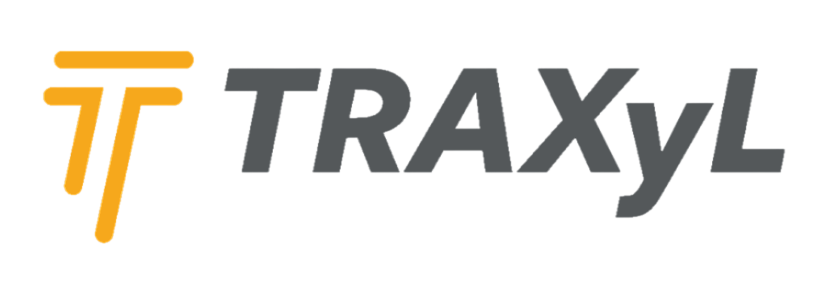Ready to build your own Founder-Led Growth engine? Book a Strategy Call
Frontlines.io | Where B2B Founders Talk GTM.
Strategic Communications Advisory For Visionary Founders
Actionable
Takeaways
Focus relentlessly on your beachhead market:
Jeremy identified choosing government contracting as their sole focus as their most critical decision. "We tried to boil the ocean...but you just limit yourself so much in what you can learn about your process and how much more repeatable you can get with things if you get smaller." Initially targeting multiple verticals (government affairs, government contracting, political strategy), Cloverleaf found its sales velocity was 5x higher in government contracting than other segments.
Translate technical capabilities into customer-centric language:
Cloverleaf struggled initially with messaging until they shifted from generic promises like "we'll drive revenue" to more relationship-focused language that resonated with their audience: "Government sales are about building relationships and being proactive. Let us help you get into the room a little bit earlier." This translation of technical capabilities to customer-centric outcomes was crucial for market penetration.
Leverage unique data assets in your marketing:
Rather than generic content marketing, Cloverleaf uses its proprietary government meeting data to deliver unique insights and analysis that potential customers can't get elsewhere. Their strategy of offering free licenses to journalists and educational institutions creates organic distribution channels while building credibility through third-party validation.
Conduct thorough procurement discovery upfront:
After a 16-month sales cycle with a major enterprise client, Jeremy emphasized the importance of procurement discovery: "Always better discovery, specifically better procurement discovery from the start would have been a pretty big game changer." Understanding organizational structures, decision-makers, and internal processes early prevents "false summits" where you think the deal is closing only to discover new layers of approval.
Validate market selection with sales velocity metrics:
When deciding which market to focus on, Cloverleaf analyzed their existing client base using sales velocity (combining cycle time and deal size) rather than looking at individual metrics in isolation. This comprehensive view revealed that government contracting opportunities closed 5x faster than government affairs deals, providing clear direction for their go-to-market strategy.
Conversation
Highlights
From Government Meeting Observer to AI Innovator: How Cloverleaf AI Is Transforming Government Contracting
Jeremy Becker spent his childhood in the back of local government meetings, playing with toy trucks while officials debated everything from pigeon problems to streetlight brightness. Those mundane experiences would later spark a multimillion-dollar business idea.
In a recent episode of Category Visionaries, Jeremy, Co-Founder and Chief Revenue Officer of Cloverleaf AI, shared how his company has raised $3.5 million to transform government meeting data into actionable sales intelligence.
Childhood Curiosity Becomes Business Innovation
For most children, attending five-hour government meetings would be torture. For Jeremy, it was a weekly routine with his father, a town comptroller.
“I would go to government meetings with him,” Jeremy explains. “For those of you who don’t know, local government meetings are these like five hour monstrosities that take place every Tuesday night.”
During these meetings, Jeremy observed something that would later become the foundation of his business: buried between hours of mundane discussion were brief segments with massive commercial value.
“Somewhere between what the city’s going to do with the pigeon problem and your, let’s say, eccentric neighbor talking about how streetlights are too bright, there’s a five minute segment that could mean millions of dollars to a company kind of later on,” Jeremy notes.
More importantly, he discovered government procurement wasn’t as objective as it appeared.
“RFPs, although to the uninitiated may seem like this wholly objective, unbiased experience, are often written with a winner in mind,” Jeremy explains. “What you won’t see are the months or years of influence from private industry that helped to craft that RFP.”
The Birth of Cloverleaf AI
This insight led Jeremy to a crucial question: How could companies identify these valuable opportunities earlier in the process?
The answer became Cloverleaf AI, a platform that uses artificial intelligence to monitor thousands of government meetings, transcribe the content, and extract valuable sales intelligence.
“We built our own speech to text engine,” Jeremy says. “We take that meeting, and the first thing we do is transcribe and timestamp each word of it.”
The technology doesn’t just identify keywords – it understands context and can be trained on industry-specific terminology. For construction giant Kiewit, Cloverleaf identified discussions about “construction manager at risk” (CMAR) delivery methods, even when transcribed differently.
Finding Focus: The Critical GTM Decision
Like many startups, Cloverleaf initially tried to serve multiple markets simultaneously. They targeted government affairs, political strategy, and government contracting. Six months in, they realized this approach was unsustainable.
“Instead of half assing three things, we should whole ass one thing,” Jeremy recalls. “And that’s when we decided to go full born to government contractors.”
This focus wasn’t arbitrary. After analyzing their first 40 clients, they discovered their government contracting segment had 5x faster sales velocity than other markets.
“We did analysis. Instead of like sales cycle or revenue amount, we kind of merged them into sales velocity,” Jeremy explains. “And when we did that, the government contracting use case was just so like far and above better than everything else.”
The Evolution of a Sales Narrative
Even with market focus, Cloverleaf faced challenges explaining their value proposition. Their initial sales pitch was generic and uninspiring.
“We started with a really canned corny help, let us help you drive revenue,” Jeremy admits.
Over time, they refined their messaging to focus on relationships and early access – values that resonated with government contractors.
“Government sales are about building relationships and being proactive. Let us help you get into the room a little bit earlier,” became their new approach.
This shift in messaging reflects a broader lesson for B2B founders: technical capabilities must be translated into customer-centric language that addresses specific pain points.
Creating a Clear ROI Story
Unlike many B2B SaaS offerings, Cloverleaf’s value proposition includes a remarkably clear ROI narrative. Their platform directly connects to client revenue by identifying opportunities earlier in the sales cycle.
“It’s one of the best things about what we do,” Jeremy explains. “It’s great to be able to point to their top line revenue and see like, ‘Yep, you see this part of that revenue graph, that’s us.'”
This direct connection to revenue makes Cloverleaf’s offering compelling, especially compared to solutions with more ambiguous ROI calculations.
Enterprise Sales: Lessons from a 16-Month Journey
Recently, Cloverleaf closed a deal with one of the world’s five largest companies, a significant milestone representing a 10% bump in revenue. The journey to closing this deal took 16 months and provided valuable lessons.
“It took right around 16 months total,” Jeremy shares. “It came about via simple cold calling. I at that point in the company, like I was their sole salesperson.”
The process involved multiple “false summits” – moments when the deal seemed close to closing, only to reveal new layers of approval or expanding scope.
Looking back, Jeremy identifies one critical lesson: “Always better discovery, specifically better procurement discovery from the start would have been a pretty big game changer for me.”
Understanding organizational structures, mapping decision-makers, and learning internal processes earlier would have streamlined the sales cycle significantly.
Leveraging Unique Data As a Marketing Engine
Cloverleaf possesses a unique dataset of government meeting information that no competitor can easily replicate. Instead of generic content marketing, they use this data to deliver insights that demonstrate expertise.
“As much as possible, we want to leverage our unique data set to try to bring some value to people as we’re marketing to them,” Jeremy explains.
Their strategy includes offering free licenses to journalists and educational institutions, creating distribution channels that amplify their reach while building credibility through third-party validation.
“We’re rolling out a system where we’ll actually give totally free licenses to anyone in journalism or anyone with an Edu address so that they can take this data and build something with it,” Jeremy shares.
Looking Forward: The Future of Government Intent
Cloverleaf’s vision extends beyond government contracting to become a comprehensive platform for “government intent” – understanding what buyers need before they know they need it.
“Our goal and what we’re always trying to drive for is to be predictive and prescriptive with our data,” Jeremy explains. “How can we understand what our people, our buyers, need to know before they know they need it?”
For B2B founders, Cloverleaf’s journey offers several valuable lessons: focus relentlessly on your strongest market, translate technical capabilities into customer-centric language, leverage unique data assets, conduct thorough procurement discovery, and create a clear ROI narrative.
As Jeremy continues building Cloverleaf AI, his childhood experiences in those “five hour monstrosities” have transformed into an innovative solution that’s changing how businesses engage with government procurement – proving that sometimes, the most valuable business insights come from the most unexpected places.

















